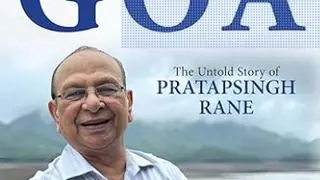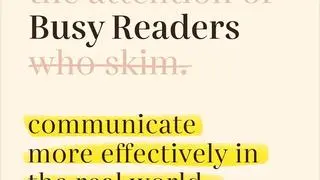Timing is everything. Enzo Ferrari strongly believed in it. When you brake. When you change the gear. When you give that little twitch to the steering wheel. Give it one split second too early and competition will go past you. Hit the sweet spot and you will live to race yet another race!
The book “Enzo Ferrari: the definitive biography of an icon” by Luca Dal Monte and the release of the movie “Ferrari” by Michael Mann are sweetly timed. Almost together!
Luca is more than a Ferrarista and a Tifosi combined. Given his absolute obsession with the Scuderia, some motoring journalist needs to coin a new term in the Ferrari glossary for people like him. In Indian culture, he would be close to an avatar of the man himself. He declares, “Literature and motor racing are not incompatible. My Enzo Ferrari biography will confirm it. Promise.” Promise delivered, Luca. Many times over.
I had read Mario Puzo’s Godfather before I saw Coppola’s interpretation on celluloid. That was a good decision or I would have never known of the importance of a character called Luca Brasi if I had seen just the movie. Books tell meandering stories, at their own pace, taking time to build characters and then see them bloom. A movie is constrained by time. I read Luca’s book before I saw Mann’s movie. Good decision, for I would have never understood the layers of complexity of Enzo Ferrari and the role of his wife and work partner Laura for a larger part of his life.
A strong legacy
This book is about the man who built one of the world’s most enigmatic brands, in any category, of any era, at any point in history. It is about moving sculptures that demonstrate the apogee of human endeavour in mixing engineering with design. It is not that this is the only brand that does so, but none other carries its legacy on its shoulders with such chutzpah.
It is not a book about racing. The racing is a manifestation of the principal protagonist’s relationships, with his team members, confidantes, collaborators, rivals, drivers, wife, mother, mistress and sons. It is the outcome of the myriad emotions he goes through each day of his life since he decided that racing was his route to nirvana. He had grown up during the two world wars, when after defeats on the battlefield, motor racing was a terrific outlet of Italian pride with maestros like Varzi, Ascari and Nuvolari setting the tracks on fire. The symbolism was just too powerful to pass by without influencing a young Enzo.
Ferrari is a bundle of contradictions, enhanced possibly because of his cultural milieu and family background. Losing his father and elder brother early in his life to the influenza pandemic after the ‘Great War’ possibly made him test life on the edge, on the track, stretching his luck at every corner. All the women in his lives are huge influences, from his mother Adalgisa to his wife Laura and his partner Lina. Each helped form his mind and his methods. His mother tells him, early in his life, that one should not have to answer any partner, and should be independent. “A person who is healthy is rich without knowing it.” She taught him to see in tomorrow a new beginning. Laura was like a shadowy pillar beside him till her death in 1978, firm, focused, feisty yet emotionally fragile. Lina, his partner from twenty years into his marriage, possibly was his window to the tomorrow his mother spoke about, especially after the death of his ‘legitimate’ son Dino in 1956.
The book is a study in the organisation behind the racing…the getting-your-hands-dirty before all the hype and hoopla of a Grand Prix. Enzo Ferrari is a master of organisation, an art he learnt from his father. The habits of being obsessive about orderliness and keeping a record of everything that happened is a lesson for all of us, more so as we become victims of our own devices. Giving up racing himself to managing a racing team that famously was named ‘Scuderia Ferrari’ once Dino was born shows us the cautious and loving side of a man otherwise manic about giving it all it takes to win. Even as late as 1976 when Niki Lauda took a bold decision not to race in torrential rain in Japan and literally give up the Formula 1 championship, Ferrari in his heart understood why Lauda had done the same and candidly admitted to “Il Commendatore” the same. Without openly sacking him, he in his inimitable way, through a rare and excruciating three-hour long press conference, pushed Lauda into calling it a day. Paradoxes in the personality to the fore.
The Industrial Saturn
The book is a study in identifying talent that will help create an unbeatable team. Ferrari had strong views about the socio-economic backgrounds of his drivers and engineers. They needed to come from the more underprivileged sections to have the fire to perform, time after time, to prove a point in a sport that was otherwise seen as opulent and extroverted. De Portago was an exception as a driver. He lost him in the horrific 1957 Mille Miglia. Between 1955 and 1971 Enzo lost seven more drivers at the wheels of his machines. He later lost Gilles Villeneuve. Didier Pironi’s career was cut short. The church called him “The Industrial Saturn”. In the Vatican’s official newspaper, without taking his name, the editorial said, “A modern Saturn becomes an industrial tycoon, he continues to devour his sons. As in the myth, so unfortunately in reality.” But he continued, unabated, in identifying talent that would one day thrill the world with their skills, both racing as well as managing. At 75 years of age, in 1973, he chose a 26-year old Luca di Montezemolo to manage Scuderia Ferrari, a man who went on to head Ferrari from 1991 to 2014.
Enzo Ferrari passed away from leukaemia on 14th August 1988, peacefully holding Lina’s hand. The Grand Old Man’s “long and wearing walk” was finally over. He never attended a Grand Prix race outside of Italy since the 1950s, never took an aircraft or an elevator. True character!
(Avik Chattopadhyay is a motorhead, auto industry veteran and brand strategist now building India’s first dedicated school of automobile design)
About the Book
Check out the book on Amazon








